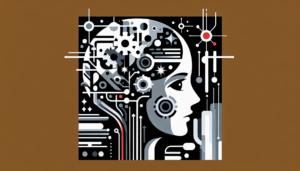The Essentials of Digital Marketing Automation
In the fast-paced world of digital marketing, staying ahead of competition means not just catching up with current trends but also anticipating future ones. One of the most significant advancements in this field is digital marketing automation, which has transformed how businesses approach their marketing strategies. This technology enables companies to automate, streamline, and measure marketing tasks and workflows, so they can increase operational efficiency and grow revenue faster. Understanding the essentials of digital marketing automation is crucial for any marketer looking to enhance their strategies and reach their targets with precision and efficiency.
What is Digital Marketing Automation?
At its core, digital marketing automation refers to the software and technologies designed for marketing departments and organizations to more effectively market on multiple channels online (such as email, social media, websites, etc.) and automate repetitive tasks. This automation not only reduces human error but also frees up time for marketers to focus on more strategic tasks that require a human touch.
Key Components of Digital Marketing Automation
Understanding the various components that make up digital marketing automation can help businesses effectively leverage this technology. Here are some essential elements:
Email Marketing Automation
Email marketing remains one of the most effective communication channels. Automation tools allow for the sending of targeted messages based on customer actions, ensuring that messages are relevant and timely.
Social Media Automation
Social media automation tools help businesses schedule posts, track engagement, and manage all their social media accounts from one place, making it easier to maintain a consistent online presence.
CRM Integration
Integrating Customer Relationship Management (CRM) systems with marketing automation tools ensures that every customer interaction is stored and analyzed, helping businesses personalize their marketing efforts and improve customer relations.
Lead Nurturing and Scoring
Automated lead nurturing helps maintain a line of communication with potential customers, gently guiding them through the sales funnel. Lead scoring, on the other hand, helps businesses prioritize leads based on their engagement and likelihood to convert.
Analytics and Reporting
Digital marketing automation tools come with powerful analytics features that provide deep insights into campaign performance, allowing marketers to make more informed decisions.
Benefits of Digital Marketing Automation
Implementing digital marketing automation brings numerous benefits to businesses, including:
- Increased Operational Efficiency: Automation of repetitive tasks frees up team members’ time to focus on strategy and creativity.
- Enhanced Customer Experience: By sending personalized and timely communications, businesses can improve their relationship with customers, leading to higher satisfaction and loyalty.
- Improved Conversion Rates: With targeted messaging and efficient lead management, businesses can see a significant improvement in their conversion rates.
- Better ROI: Through efficient resource allocation and improved conversion rates, businesses can achieve a better return on investment for their marketing efforts.
Implementing Marketing Automation
Implementing digital marketing automation in your business involves selecting the right tools that fit your marketing strategy and goals, setting up proper workflows and processes, and continuously monitoring and tweaking your campaigns for optimization. It requires a blend of software, strategy, and skilled personnel to fully realize its benefits.
In conclusion, the essence of digital marketing automation lies in its ability to make marketing tasks more efficient and effective. By understanding its components and benefits, marketers can leverage automation to not only save time but also deliver more personalized and meaningful campaigns that drive better results.




